In today’s digital world, social media has become deeply intertwined with our daily lives. Platforms like Instagram, TikTok, and Facebook keep us connected, entertained, and informed. But alongside the benefits comes a darker side, comparison culture. Constantly seeing others’ curated lives can affect how we perceive ourselves, often leading to self-doubt, envy, and lowered self-esteem. This article explores the relationship between social media and self-worth, offering practical strategies to navigate comparison culture in healthier ways
The Link Between Social Media and Self-Worth
Social media offers endless opportunities for connection and self-expression, but it also acts as a mirror, reflecting what we believe we lack.
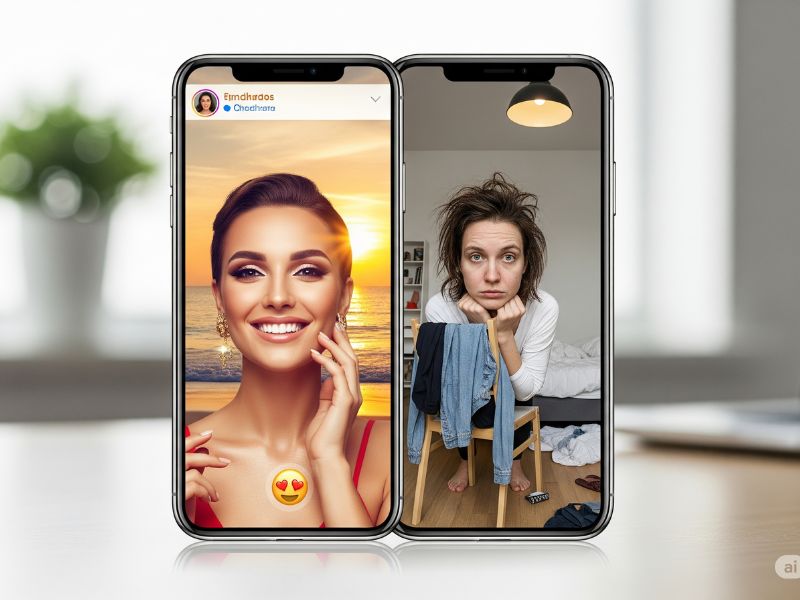
- Highlight Reels vs. Reality: Most users share polished, filtered, or carefully selected moments of their lives. This creates an illusion that others are happier, more successful, or more attractive.
- The Validation Trap: Likes, shares, and comments can become measures of self-worth. When engagement is low, it can feel like a personal failure.
- Comparison Spiral: Studies show that frequent social media use increases the tendency to compare ourselves to peers, which can fuel insecurity and anxiety.
Why Comparison Culture is So Strong Online
Comparison is part of human nature, but social media intensifies it in ways previous generations never faced.
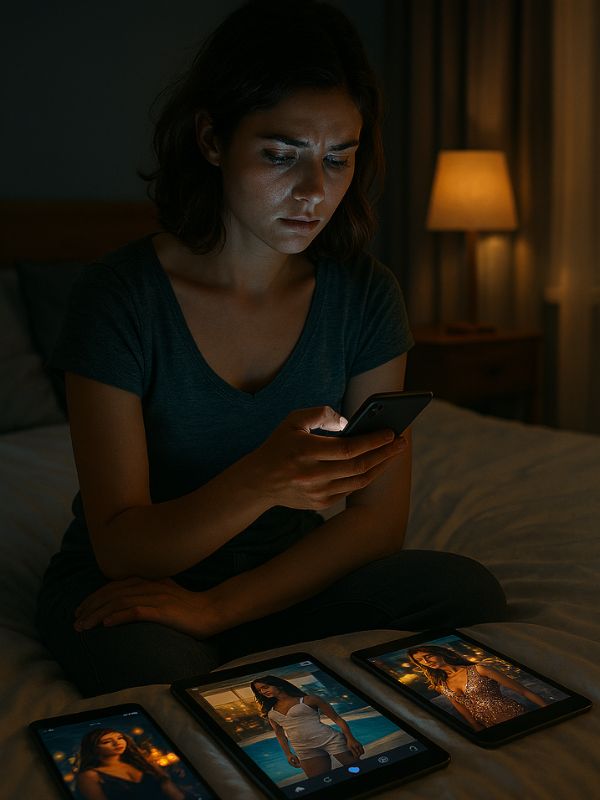
1. Constant Exposure
We carry our phones everywhere, meaning comparison is only a scroll away, 24/7 access to other people’s achievements, vacations, and milestones.
2. Algorithm-Driven Perfection
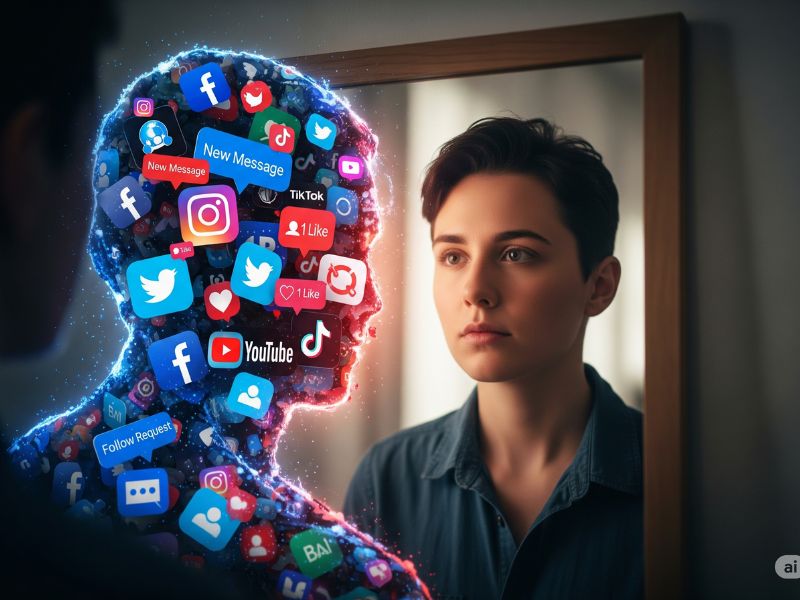
Social platforms prioritize content that performs well, often glamorous, entertaining, or aspirational. This reinforces the idea that everyone else’s life is extraordinary.
3. Influencer & Celebrity Culture
Seeing influencers flaunt luxury lifestyles creates unrealistic standards. For young users, this can distort perceptions of success and self-value.
The Impact on Mental Health
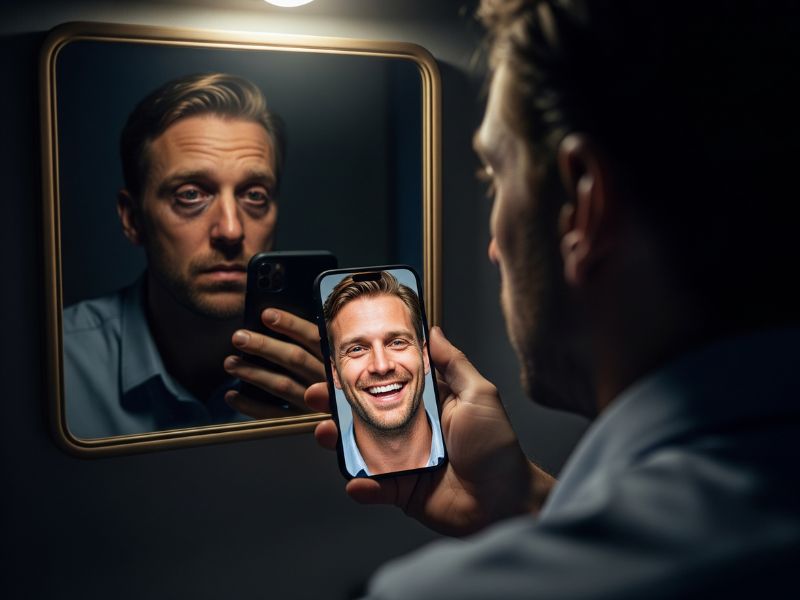
The effects of comparison culture aren’t just surface-level, they can deeply impact mental and emotional health.
- Lowered Self-Esteem: Constantly feeling “less than” others leads to questioning one’s worth.
- Anxiety & Depression: Research links heavy social media use to higher rates of anxiety and depressive symptoms.
- Body Image Issues: Platforms emphasizing appearance (like Instagram) can fuel unhealthy body comparisons.
- Fear of Missing Out (FOMO): Seeing others at parties, on trips, or achieving milestones can make people feel left behind.
Strategies to Navigate Comparison Culture
1. Curate Your Feed
Unfollow accounts that trigger negative feelings. Instead, follow creators who inspire, educate, or uplift you. What you feed your brain on social media is extremely important, repeated exposure will harden the patterns in your subconscious mind and you will lead a robotic life. So, take care of what you watch.
Must Read: Self Esteem and Weight Loss
2. Practice Digital Detox

Take breaks from social media to reset. Even short daily breaks (like no scrolling before bed) can reduce stress. Digital detox, the importance of this term cannot be pressed enough in today’s time. Just like the body needs detox, the mind needs it too, its just that we realize it when its late.
3. Shift the Perspective
Remember that social media is a highlight reel, not real life. Compare less, and appreciate your own journey more. You will come across several post on social media itself that shows how strange a life social media influencers are living. Only happy on the outside, their inside is literally messed up like hell.
4. Limit Screen Time
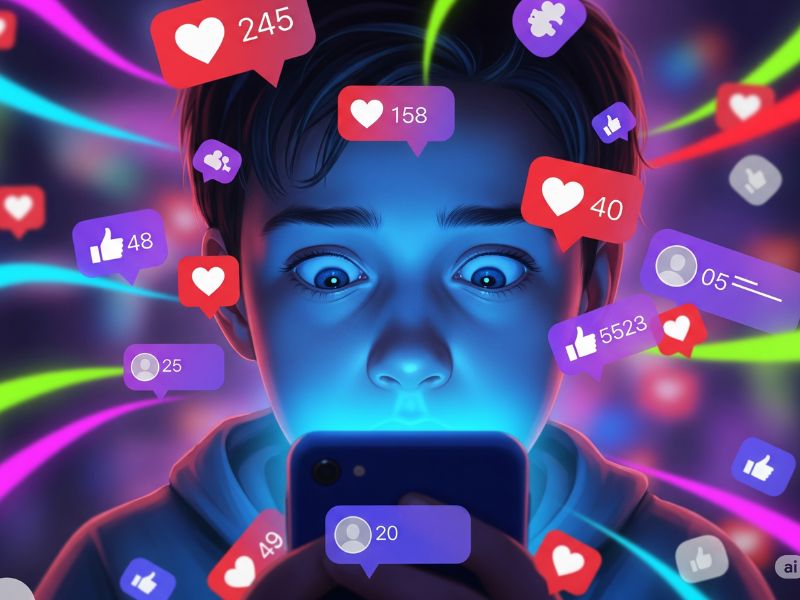
Set app timers or boundaries for daily use. The less time spent scrolling, the less opportunity for comparison. Well there are two disadvantages of an extended screen time, one, your eyes are going to take a toll, there will be headaches, dryness in eyes, and with time you will have to put up with it almost everyday. Second, excessive screen exposure leads to sleep disturbances, which I am going through right now, and believe me, its frustrating.
5. Practice Gratitude
Focusing on what you have helps counter feelings of inadequacy. Daily gratitude journaling can boost self-worth. When you spend time away from the screen you get creative, you begin to notice things around you and find happiness in them. You also start to reflect on your life, and your actions, both of which, you were unable to do because of easy access to social media and digital gadgets.
6. Build Offline Confidence
Engage in hobbies, exercise, volunteering, or real-life connections that reinforce your sense of value beyond likes and follows. There is ample research that social media exposure is crushing our confidence, because we don’t step in the arena, we just practice things in our minds, which alone is not sufficient if you wish to do something worthwhile.
Building Healthy Self-Worth in the Digital Age
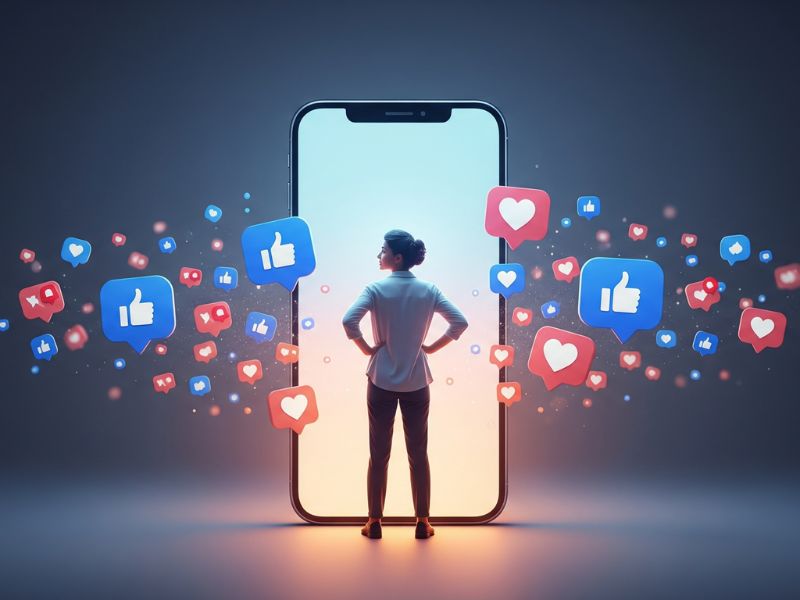
True self-worth comes from within, not from online validation. To thrive in today’s digital age:
- Develop self-awareness → Recognize triggers that lower your confidence.
- Redefine success → Measure progress by personal growth, not external comparison.
- Seek support → Talking to friends, family, or professionals can help process emotions tied to social media use.
FAQs on Social Media and Self-Worth
1. Does social media always harm self-worth?
Not necessarily. It depends on how you use it. Following positive accounts and setting boundaries can make social media empowering.
2. How can I stop comparing myself to others online?
Curate your feed, take breaks, and remind yourself that posts are curated highlights, not reality.
3. Is deleting social media the only solution?
No. Deleting is an option, but balance and mindful use are often more sustainable.
4. Why do likes and followers affect my mood so much?
The brain releases dopamine when we get likes, making it addictive. This is why low engagement feels discouraging.
5. Can social media ever improve self-worth?
Yes! When used to learn, connect with supportive communities, or share achievements authentically, it can boost confidence.
Conclusion: Choosing Self-Worth Over Comparison
Social media is here to stay, but how we engage with it determines its impact. By practicing mindfulness, setting healthy boundaries, and focusing on personal growth, we can shift from harmful comparison to empowered connection.
The journey to healthy self-worth in the digital age starts with recognizing that you are more than your likes, followers, or online persona, you are enough as you are

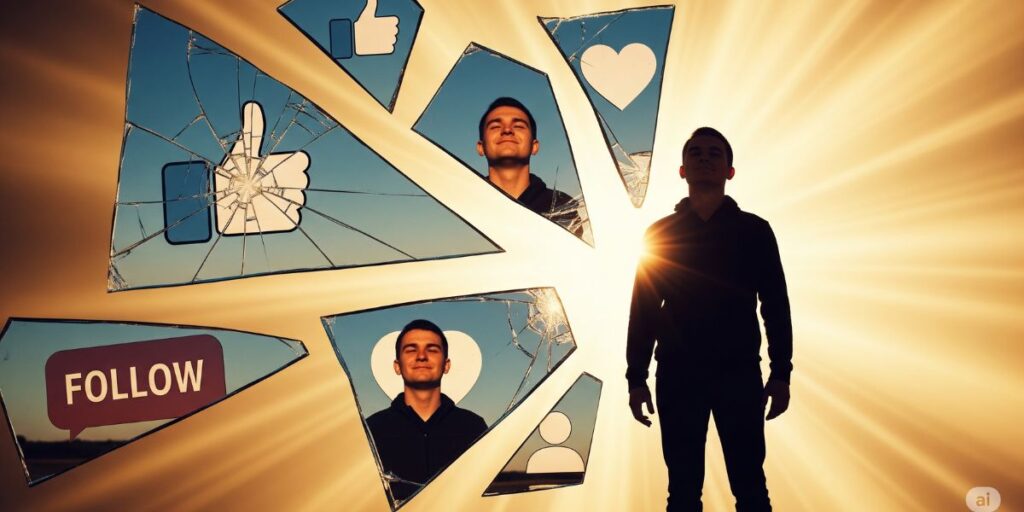


Pingback: Top 5 can’t‑miss travel destination picks in Europe (Part 1)
Pingback: 5 Truths About the Psychology of Spending and Regret
Pingback: Best Travel Destinations in Europe You Must Visit in 2025